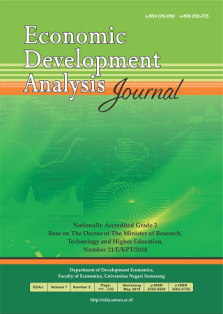Implementation of Micro Business Productive Assistance Program
Abstract
The Covid-19 pandemic has had an impact on all levels of society. In particular, micro-entrepreneurs have experienced a decline in income and reduced mobility in buying and selling activities. The government provides stimulus assistance, Productive Assistance for Micro Enterprises (BPUM), to reduce this impact. This study aims to analyze the implementation of the Micro Business Productive Assistance (BPUM) Program in Kediri City. The results are achieved by collaborating with each actor who played a role in the action program and individual projects, the resulting outcomes, and analysis of supporting factors and obstacles to implementing the BPUM program in Kediri City based on the Merilee S. Grindle implementation policy model. This study uses qualitative research methods with case study methods. The study's results found that program implementation needs to be improved by understanding and further coordination by program implementers to make it better and more efficient. This research contributes to the excellent collaboration of each actor who plays a role in action programs and individual projects by using implementation policies from Merilee S. Grindle so that microenterprises are more actively seeking information assistance from the government either directly or indirectly. In addition, the government can update the amount of data for micro-entrepreneurs and make backups through a one-door system, so that duplicate data does not occur when registering or submitting assistance.


